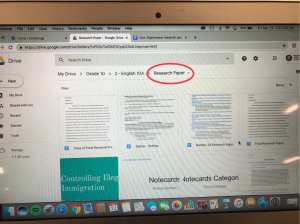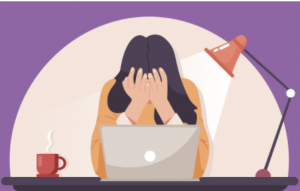Truths about mental health jarring, education of issues needed
Specific statistics about undiscussed mental illnesses are not always made well-known to the public, and stigmas about such less-known mental illnesses are rampant among the Staples community.
In 10th grade, like many students, I struggled with my mental health. The stress of COVID, pressures of being a high school student and the country’s political environment were constantly crowding my mind, along with due dates, math equations and notes for my U.S. history class.
I had always struggled with mild anxiety, but this was different. I had obsessive compulsive disorder-like (OCD) symptoms that intruded on my thoughts, making my everyday life slow to a crawl. I irrationally obsessed over insignificant things, such as angling my bathroom door “correctly” at night before I went to sleep, continuing to tap it until it felt “just right.”
As this disordered behavior became a part of my life, and I continued to attend my classes at Staples, I realized more and more just how many people- both teachers and students- are miseducated about mental disorders such as OCD, and how damaging this can be to people who are actually struggling with them.
One of my teachers last year made one comment that I couldn’t shake, and I still haven’t. He was a great teacher in terms of helping me learn, making the class laugh and forming close bonds with his students. He had been joking about making a data table on a google doc, and said something along the lines of “I need these lines lined up; I’m just so OCD.”
Now, as I mentioned before, he was a great teacher, so I shook it off, even as the students around me laughed. But because of my recent struggles with that specific illness, it hit me pretty hard.
When the same teacher made another similar comment a few weeks later, I felt more upset. I thought about it and realized that, even though he was one of the smartest teachers that I knew, he was uninformed.
He was not trying to be offensive to people with mental health issues. Like so many people are, he was misguided on the real symptoms and effects of mental disorders.
Activists on social media have done a great job raising awareness about the fact that mental illness exists, but have not spent enough time explaining to people why it’s important to not use them in everyday language as descriptors of mild, temporary cases of stress or other emotions.
A redundant message on social media nowadays is encapsulated in positive looking posts with bright colors saying something like “Check in on someone; they could be struggling.” Millions of users repost them, and then move on with their lives.
They later joke about their own stresses. “I’ll kill myself if I don’t do well on this test.” Or, “I’m, like, bipolar sometimes.”
For people who do not experience mental illness, the only thing they “experience” is taking 30 seconds out of their day to post on Instagram once in a while. They don’t know what mental illness is really like. They don’t know how much a suicide can affect a family, or how being bipolar can destroy a person’s life without the proper medicine or treatments.
As a person living with a mental illness, albeit a somewhat mild case of it, I always make it my mission to inform people on proper ways to complain about their own stresses without invalidating what it is like to have a real mental illness. In this day and age where we have information havens like social media and the internet at our fingertips, the truths and real struggles of mental illness are not difficult to be made aware of.
It is not good enough to plainly recognize that mental illness exists. The Staples’ community must recognize the differences between a common stress and debilitating worrying; sadness and life-altering depression, in order to support people who are actually struggling every day with mental health disorders.
Associate Managing Editor Phoebe Miller ’23 leads a dominant role on the Staples girls’ gymnastics team.
“It’s really nice being able to challenge...

Two things Web News Editor Abby Nevin ’23 likes: journalism and gymnastics.
She joined Inklings because she thought journalism was a cool idea....


























